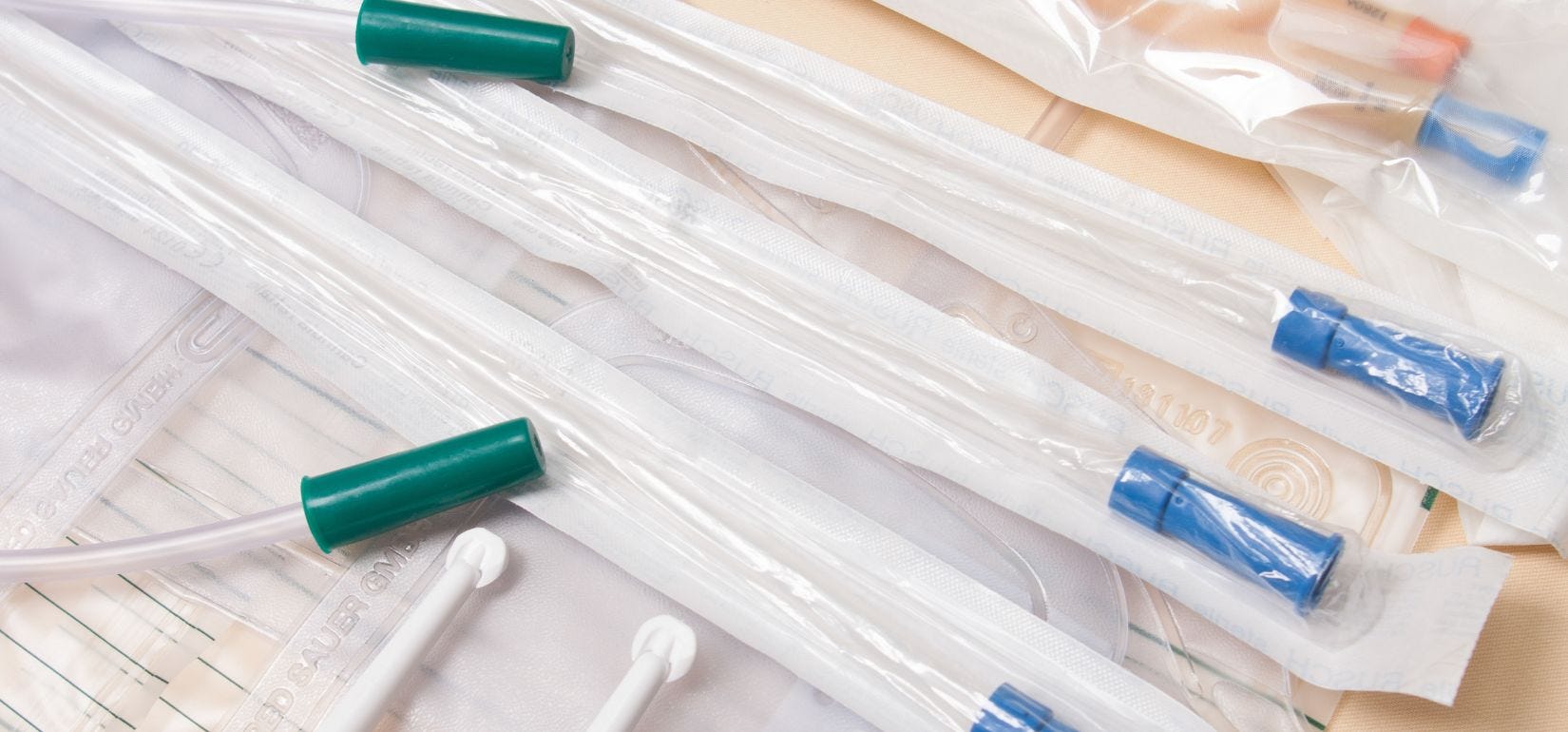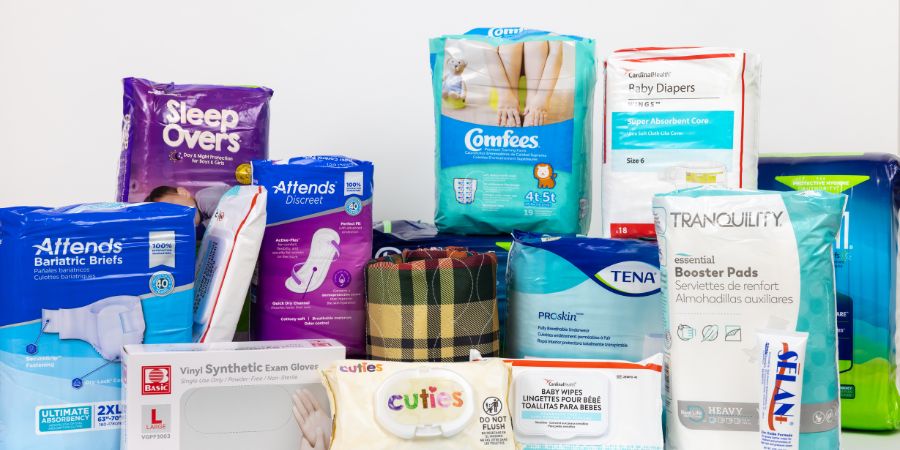Key Takeaways:
- Bedwetting, or nocturnal enuresis, affects millions—around 5-7 million children and 5 million adults—making it a common issue with both physical and psychological causes.
- Stress, anxiety, and life events can play a significant role in bedwetting for children and adults, often linked to deeper emotional or mental health challenges.
- Help is available—from bedwetting alarms and therapy to medication and lifestyle changes; there are effective ways to manage and treat enuresis for all ages.
About five to seven million children and around five million adults experience bedwetting, otherwise known as nocturnal enuresis (NE). It's very common, but why does it happen?
Read this post to find out why and see what you can do to help stop bedwetting.
What Is Enuresis?
There are two types of nocturnal enuresis (NE).
Primary nocturnal enuresis (NE): When a person has consistently wet the bed since birth. In this case, a person has never had consistent dryness at night lasting more than 6 months.
Secondary enuresis (SNE): When an individual has been dry overnight for at least 6 months consistently and has a recurrence of wet nights. At least eight percent of children develop SNE around the age of 10.
What Are the Physical Causes of Enuresis?
The physical causes of primary and secondary nocturnal enuresis vary from child to adult.
Physical Reasons for Bedwetting in Children
In your child, the causes for bedwetting may include:
- Constipation. A 2018 study revealed that about 32 percent of children and adolescents are constipated, and when your child is constipated, it can lead to NE for two reasons. The first is that when your child's rectum is full, it can reduce the amount of urine their bladder can hold. The second is that full bowels can mix up nerve signals from the bladder to the brain. This can contribute to bedwetting and daytime urinary symptoms such as daytime incontinence (wetting), urgency, frequency, and urinary tract infections (UTIs).
- Genetics. There seems to be a link between children who wet the bed and parents who wet the bed when they were young. Seventy-seven percent of children whose parents experienced NE wet the bed. So, if you wet the bed when you were younger, it's more likely your child will, too.
- Bladder size. If your child wets the bed, it may be due to their bladder capacity. Some children have smaller bladder sizes, leading to less room to hold urine at night and less bladder control.
- Medical conditions. Children who wet the bed sometimes have correlated with and associated with medical conditions, such as sleep apnea, diabetes, incontinence, sickle cell disease, UTIs, and attention deficit hyperactivity disorder (ADHD).
- Neurological conditions. Seizure disorders, multiple sclerosis (MS), and Parkinson's disease have been linked to bedwetting due to impaired bladder control.
- Basic arousal from sleep. For many children who experience bedwetting, the underlying cause is simply that they are heavy sleepers and do not wake up easily at night.
- Hormone imbalance. The antidiuretic hormone (ADH), also known as vasopressin, controls how much urine the body makes at night. ADH tells the body to make less during sleep, but if your child's brain doesn't produce enough ADH, they will make too much urine as they sleep.
Check your coverage for 100% free incontinence products now!
Check your coverage for 100% free incontinence products now!
Physical Causes of Bedwetting in Adults
In adults, the physical reasons for nocturnal enuresis may include:
- Genetics. Like children, adults can experience bedwetting due to their family history. Bedwetting can be passed down from generation to generation. If your parent or parents wet the bed, the chances that you will are much higher.
- Hormone imbalance. The same hormone, vasopressin or ADH, controls urine production in adults. You may wet the bed if you don't make enough ADH at night.
- Bladder size. Like children who wet the bed, adults with smaller bladders may be unable to hold more urine at night and, therefore, may experience NE.
- Overactive bladder (OAB). If you have OAB, you may be more likely to wet the bed due to your bladder muscles contracting at incorrect times.
- Medical conditions. Adults who have NE sometimes have correlating conditions, such as cancer, UTIs, prostate cancer, enlarged prostate gland, pelvic organ prolapse (in women), bladder cancer, and diabetes (especially among older adults).
- Neurological conditions. Seizure disorders, multiple sclerosis (MS), and Parkinson's disease have been linked to adult bedwetting due to impaired bladder control.
- Obstructions. If you experience bedwetting as an adult, it may be due to blockages or obstructions in your urinary tract. Common obstructions include kidney stones, tumors, and bladder stones. These can also cause daytime wetting and incomplete voiding.
- Medications. Some prescriptions taken for insomnia, such as Thioridazine, Clozapine, and Risperidone, can cause bedwetting in adults.
- Bladder irritants. Irritants like caffeine and alcohol can cause bedwetting. Drinking alcohol slows the production of ADH in your body, so when you go to sleep after drinking, your body continues to produce large amounts of urine. Alcohol also irritates the bladder and adds to the amount of fluids that need to be filtered through your body.
- Sleep problems. If you experience sleep apnea or have difficulty arousing from sleep, you may be more prone to NE.
What Are the Psychological Causes of Enuresis?
The physical reasons listed above have been proven to be linked to NE, but what about the non-physical causes of bedwetting?
According to the American Psychological Association, although it is not entirely understood, there is a link between psychological factors and bedwetting in adults and children.
Psychology Behind Bedwetting in Children
One study found that NE is ranked as the third most distressing life event for children (out of 11), so it makes sense that wetting the bed would be an outcome of these issues. Possible causes include:
- Stress, anxiety, or fear. If your child experiences stress, anxiety, or fear, they may be more prone to wetting the bed. Chronic stressors, such as socioeconomic problems, a family's financial situation, bullying, and other anxieties, have been linked to bedwetting. When children experience stress, they have a more challenging time falling asleep, leading to sleep deprivation. After being sleep-deprived, they go into an even deeper rest where they cannot wake themselves up to use the bathroom.
- Life events. Significant life changes, like moving, divorce, attending a new school, the birth of a new sibling, or a death in the family, can cause or worsen NE in your child. When these changes occur, your child's stress level may rise, resulting in sleep deprivation and bedwetting. One study also found that stressed children were likelier to experience NE.
- Child abuse or sexual abuse. The American Academy of Pediatrics revealed that NE could result from sexual abuse in children and teens. Some healthcare professionals believe this is a protective mechanism children may use against their abuser. Still, it may also be an unconscious decision made due to stress and fear. Physical abuse by parents, family members, or caretakers in the home or at a daycare / school may also lead to bedwetting in children. Always take action if you believe your child is being harmed or abused in any way.
- Post-traumatic stress disorder (PTSD). PTSD may develop in children who have experienced physical or sexual abuse or things like car accidents. PTSD can cause bedwetting, fear of falling asleep, or nightmares in children. In addition, reliving the events that cause PTSD can trigger a fight-or-flight response in your child's body, causing their nerves to become extra sensitive. This can result in the body filling the kidneys with urine and contracting too quickly to reach the bathroom.
- Night terrors. Sleeping problems like night terrors (possibly due to PTSD) can cause your child to wake up in a panic, causing them to lose control of their bladder and wet the bed.
Psychology Behind Bedwetting in Adults
The psychological aspects of NE are similar in adults to those in children, with a couple of different possibilities. Because adults are unlikely to disclose their bedwetting patterns to healthcare professionals due to shame or embarrassment, there may be less evidence to support the psychological causes. Some of the known reasons in adults include:
- PTSD. No matter what age you are, PTSD can increase the likelihood that you experience bedwetting. NE in veterans is ubiquitous; One study showed that incontinence was three times more likely, including bedwetting, in men who had PTSD from war experiences.
- Life events. It can all contribute to bedwetting if you are starting a new job, having a child, entering into a new relationship, moving into a new house, or losing a loved one. These life changes create stress, making it harder to fall asleep. When you do finally sleep, you may go into a deeper sleep and not wake up to go.
- Unsafe environments. If you live in an environment that feels unsafe, you may experience bedwetting due to stress. An environment in which you are sexually or physically abused is also considered hazardous for adults, which can lead to wetting the bed. If you live in an unsafe situation or are experiencing abuse, always get help.
- Stress and anxiety. Emotional problems like stress and anxiety can cause NE. If you experience chronic stress or anxiety, your body enters the fight-or-flight response, which can fill your kidneys with urine while you sleep.
Impacts of Enuresis
Bedwetting can have a significant impact on the lives of adults and children, whether it's in the form of low self-esteem, shame, embarrassment, or not being able to participate in certain activities.
The impacts bedwetting can have on children include:
- Emotional and social development issues. If your child wets the bed frequently, they may experience bullying or teasing from family members or peers. This can impact their emotional and social development by causing shame, embarrassment, and fear of participating in sleepovers, family holidays, and certain school activities.
- Low self-esteem. Your child's self-esteem may be lowered when they wet the bed, leading to a cycle of more wet nights. This may be because children who wet the bed report being teased by their family members or peers.
The impacts of bedwetting in adults include:
- Financial strains. It's estimated that it can cost you up to $1,000 a year to replace damaged bedwetting bedding.
- Low self-esteem. If you're experiencing NE, you may feel ashamed and begin to experience low levels of confidence.
- Depression. A study showed that adults who wet the bed had higher cases of depression and, in turn, were more likely to wet the bed.
- Interruption of daily life. If you experience bedwetting, you may avoid taking specific jobs. You may also see a drop in your performance at work due to waking up in the middle of the night to get dry. You may choose not to participate in activities like staying at other people's or a partner's house to avoid a bedwetting incident.
How to Treat Enuresis
If you or your child are experiencing bedwetting, don't worry. It's prevalent, and healthcare communities have found many ways to help break the cycle. Interventions include:
Speak With Your Healthcare Provider
The first step in treatment is speaking with your medical provider. If your child is experiencing NE, talk with their pediatrician to discuss the right path to help them. If you are experiencing bedwetting as an adult, try not to be ashamed— bedwetting is not uncommon. The more we discuss what we're experiencing, the more help we can get.
Use Incontinence Products
Adult and pediatric incontinence products, such as adult pull-on underwear, pediatric diapers, or bladder pads, can help your child stay dry at night, even if an accident occurs.
Get Testing Done
A urinalysis can determine your urine's specific gravity, indicating if you can concentrate your urine. If you cannot, you may be more prone to NE and require more testing. An ADH test will test the levels of the antidiuretic hormone, or vasopressin, in the body.
This may help rule out if the cause is a low amount of ADH. Getting an ADH test won't determine a condition by itself, but it can be helpful for your healthcare provider as they attempt to treat you or your child's condition.
Try Bedwetting Alarms
Bedwetting alarms can work for deep sleepers who experience NE. These are typically thought to be the gold standard treatment for bedwetting. To use bedwetting alarms, you place a sensor in your or your child's pajamas, and the alarm will sound when it senses moisture. The alarm should wake you or your child up to use the bathroom. However, it can be challenging for individuals who are deep sleepers.
Talk to a Therapist
If you or your child is experiencing PTSD, chronic stress, anxiety, bullying, low self-esteem, or physical or sexual abuse, speak with a professional therapist. You or your child's mental health should always be a priority. Not only will this help with psychological issues behind bedwetting, but a therapist may also be able to help come up with a plan to stop the NE.
Ask About Medication
Sometimes, your healthcare provider may prescribe desmopressin or imipramine (for children ages six and up). These medications can lower the amount of urine your kidneys produce and help you or your child sleep through the night.
Manage Stress at Home
If stress is the reason behind NE, try managing it at home. Techniques like using positive mantras, stress balls, meditation, and exercise can all help to reduce stress.
Be Supportive
If your child is experiencing bedwetting, be supportive of them and encourage them. Let them know they are not alone by explaining how common bedwetting is among children. You can also help them by reaffirming their behavior when they wake up wet, such as telling them they were brave to come and get you for help.
Use the Bathroom at Night
Before bedtime, you should use the bathroom to ensure you void your urine completely before sleep. It is recommended to double-pee (pee, do something for 2-5 minutes, then pee again) before bed if possible. This may help decrease the amount that builds up during the night.
Alter Your Diet & Fluid Intake
Limit the amount of fluids you or your child has before bed and reduce your caffeine and alcohol intake, as limiting bladder irritants may reduce the risk of wetting overnight.
Try Bladder Therapy
Speak with a healthcare professional to see how to retrain your bladder to hold more urine during the night.
See a Sleep Specialist
If you experience heavy sleep or sleep apnea, see a specialist. They may use continuous airway pressure therapy to treat sleep apnea.
Ask About Surgery
If you experience incontinence and NE, surgery may be an option for you. Sacral nerve stimulation, detrusor myectomy, pelvic organ prolapse repair, and bladder augmentation may help.
References:
Young Veterans at High Risk of Urinary Incontinence. (n.d.). Www.mdedge.com. Retrieved March 15, 2022, from https://www.mdedge.com/psychiatry/article/54886/mens-health/young-veterans-high-risk-urinary-incontinence
NextLevel. (2020, February 14). Urinary Incontinence And Vets: Could PTSD Cause Urinary Incontinence? Men's Liberty. https://mensliberty.com/urinary-incontinence-vets-ptsd-causing-urinary-incontinence/
Joinson, C., Sullivan, S., von Gontard, A., & Heron, J. (2016). Stressful Events in Early Childhood and Developmental Trajectories of Bedwetting at School Age. Journal of Pediatric Psychology, 41(9), 1002–1010. https://doi.org/10.1093/jpepsy/jsw025
Bedwetting in Children & Teens: Nocturnal Enuresis. (2019). HealthyChildren.org. https://www.healthychildren.org/English/health-issues/conditions/genitourinary-tract/Pages/Nocturnal-Enuresis-in-Teens.aspx
Urology | Adult Bedwetting (Enuresis) Causes & Symptoms | Beaumont Health. (n.d.). Www.beaumont.org. Retrieved March 15, 2022, from https://www.beaumont.org/conditions/enuresis#:~:text=Medication%20and%20Diet
Bedwetting | CS Mott Children's Hospital | Michigan Medicine. (n.d.). Www.mottchildren.org. Retrieved March 15, 2022, from https://www.mottchildren.org/posts/your-child/bedwetting
Bedwetting (Nocturnal Enuresis): Diagnosis, Tests, Management and Treatment. (n.d.). Cleveland Clinic. Retrieved March 15, 2022, from https://my.clevelandclinic.org/health/diseases/15075-bedwetting#:~:text=Psychological%20or%20emotional%20problems%3A%20Emotional
Adult Bed Wetting (Nocturnal Enuresis): Treatment and Causes. (2018, July 13). Healthline. https://www.healthline.com/health/adult-bed-wetting#:~:text=Research%20suggests%20bed%2Dwetting%20occurs
How To Stop Adult Bed Wetting (Sleep Enuresis). (n.d.). National Association for Continence. Retrieved March 15, 2022, from https://www.nafc.org/adult-bedwetting
8 common causes of constipation in kids - Children's Health. (2019). Childrens.com. https://www.childrens.com/health-wellness/8-common-causes-of-constipation-in-kids#:~:text=According%20to%20a%202018%20study
Secondary Nocturnal Enuresis. (2014, August 12). National Kidney Foundation. https://www.kidney.org/patients/bw/BWbedwetSecondary#:~:text=Secondary%20enuresis%20is%20a%20condition
APA PsycNet. (n.d.). Psycnet.apa.org. Retrieved March 15, 2022, from https://psycnet.apa.org/record/2015-39058-001
Disclaimer
Information provided on the Aeroflow Urology blog is not intended as a substitute for medical advice or care from a healthcare professional. Aeroflow recommends consulting your healthcare provider if you are experiencing medical issues relating to incontinence.













